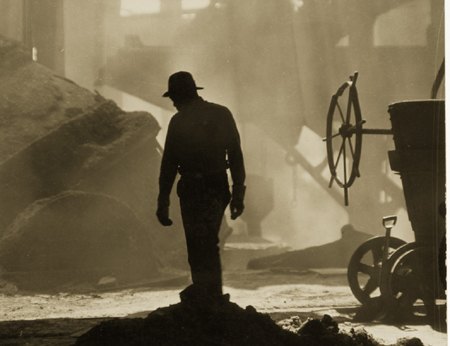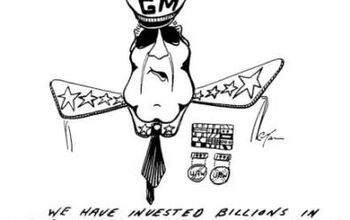UAW Health Care VEBA: A Cautionary Tale
We've been highlighting the dangers of placing the United Auto Workers (UAW) members' multi-billion dollar health care provision into the hands of union bosses since the idea was first mooted. The Tribune Chronicle (Warren, OH) reports that one of the nation's longest running union-controlled VEBAs (Voluntary Employees' Benefits Association) is about to run dry. After twelve years doling-out health care payments for Copperweld Steel retirees, the VEBA will be out of cash in "a few more years"– some 15 or so years shy of its goal. Cooperweld's VEBA ran into trouble when the company filed for bankruptcy. Hamlin Holdings purchased Copperweld in 1995 and renamed it CSC. In 2001, Hamlin stopped making payments. In 2007, CSC went Chapter 7 and that was that. "No one imagined that CSC would go bankrupt," says VEBA trust committee chairman Earl Thomas. "If we were doing it differently, we would have made sure we had secured promissory notes." The Trib article also characterizes the template for the VEBA movement, the U.S. Steel's agreement, as something of a mixed blessing. "Many of our members are not satisfied,’’ Bill Luoma, president of Steelworkers Organization of Active Retirees, told the paper. "[Health care] is a high cost item for many individual retirees, especially when compared to what they were responsible to financially contribute before the company relinquished its responsibilities for retiree health care.’’
More by Robert Farago


































Comments
Join the conversation
I don't get it. This seems totally backwards. If I read it right, the VEBA actually gave the union members healthcare coverage for a longer period of time than if there had been no VEBA. Since 2001 when the company stopped funding health care, they have had the VEBA covering them. That sure beats nothing, which is what the rest of the working American public gets. I will concur that having a VEBA with an unbalanced investment portfolio was stupid. It is no different that having your retirement account all investing in one stock. They should have brought in a competent investment manager to align the portfolio with the fund's objectives and tolerance for risk. After balancing the portfolio, they would have seen that there may not have been enough capital to achieve the VEBA objectives. Then they would either have to ask for more capital, or they would have to start taking a hard look at the medical expenses they were responsible for paying. Welcome to the real world of defined benefits (like IRA's, 401ks, etc). You get out of it what you put in to it. No more.
I don't think the problem was with the investment portfolio but rather with the company which did not make the originally agreed upon payments to fund the VEBA.
Yankinwaoz, I think you mean "defined contribution," not "defined benefit." The latter means you get whatever benefits you were promised no matter what the cost. The benefits are defined -- set out in stone -- and money is no object. Granted, if the company goes broke, you're probably out of luck. The former means (defined contribution) that a certain pot of money is set aside (your money, your employer's money, a little of both, whatever), and you try to invest it and spend it as wisely as possible. What happened in the CSC case is that the VEBA never got all the money it was promised because the company went bust first -- the money was supposed to be paid into the VEBA over a number of years, and only some of those payments were made before bankruptcy. I'm not sure what the promissary notes are. It may be that the VEBA was holding its cash investments in the form of CSC bonds or some such, but I doubt it. More likely is that the entire amount of the VEBA was written out as promissary notes at the time it was formed, with some notes converting to cash every year -- which would then be put in diverse investments. Since the company went bankrupt unexpectedly quickly, the VEBA had to wait in line with other unsecured creditors to get proceeds from the liquidation. That didn't amount to much. Had the VEBA notes been secured against some real assets (buildings, machines, whatever), they could have made a priority claim against those assets, sold them for cash, and recovered more of what they were owed. Had the VEBA been well advised, however, they would have sold at least some of the notes up front to cash investors, who would have assumed the risk in exchange for some discount on the face value of the notes. The proceeds could have then been invested in diverse vehicles.
"No one imagined that CSC would go bankrupt" Famous last words.